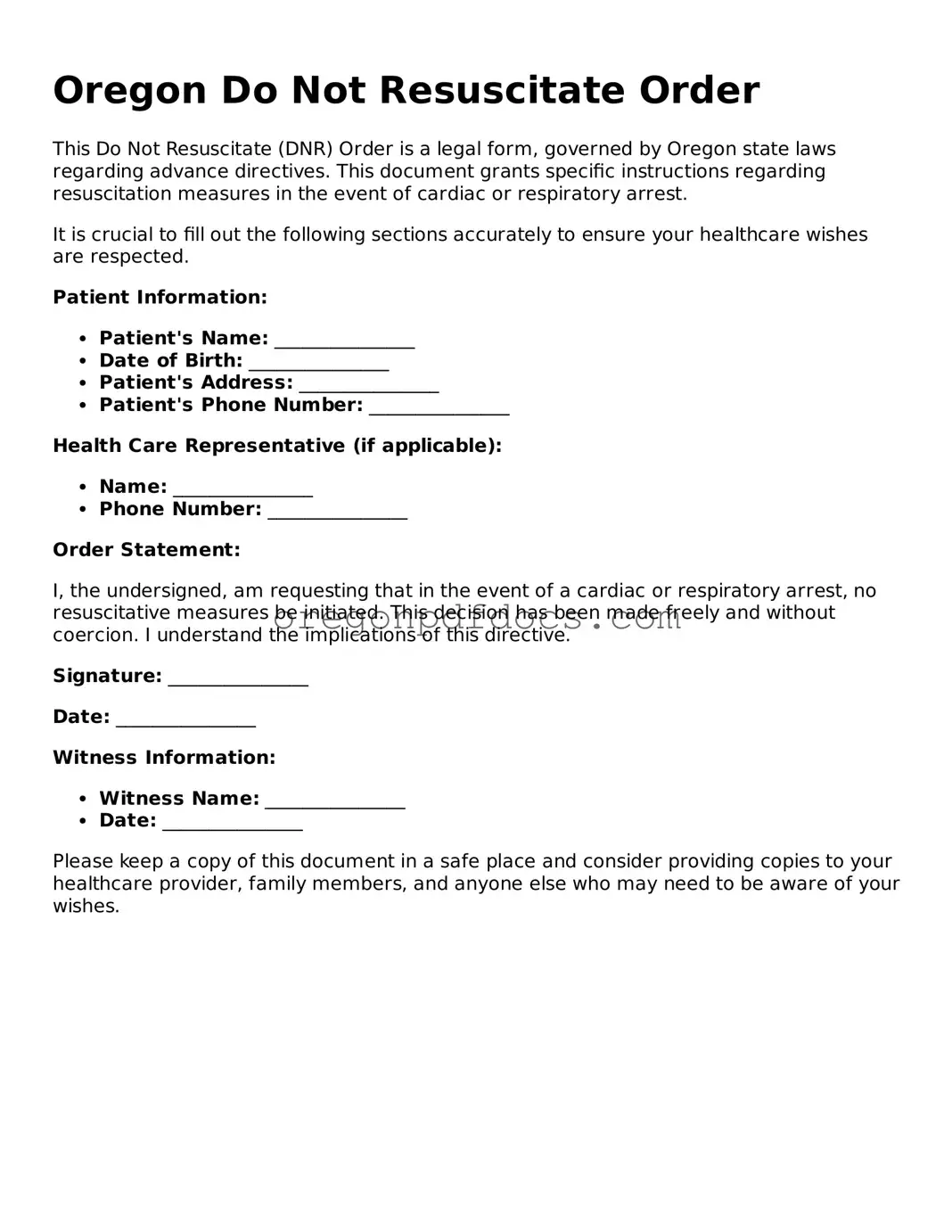Printable Oregon Do Not Resuscitate Order Document
The Oregon Do Not Resuscitate Order (DNR) form is a legal document that allows individuals to express their wishes regarding resuscitation efforts in the event of a medical emergency. By completing this form, a person can communicate their desire to forgo life-saving treatments, ensuring that their preferences are respected by healthcare providers. If you wish to take control of your medical decisions, consider filling out the DNR form by clicking the button below.
Make My Document Online

Printable Oregon Do Not Resuscitate Order Document
Make My Document Online

Make My Document Online
or
Get Do Not Resuscitate Order PDF Form
One more step to finish this form
Finalize your Do Not Resuscitate Order online in a few easy steps.